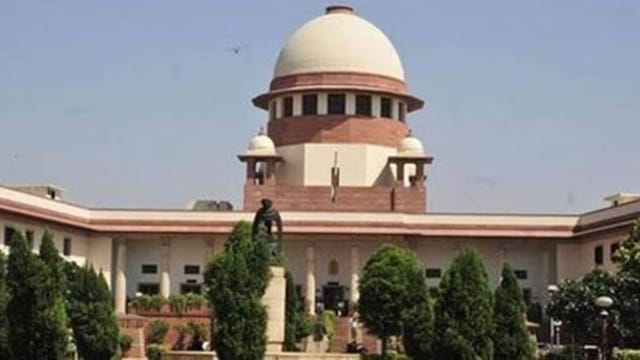‘You don’t want India to be secular?’: SC asks petitioners challenging inclusion of ‘secularism’, ‘socialism’ in Preamble
Advocate Vishnu Shankar Jain highlighted the issue of the date of Amendment and wondered how that could have been possible.
 Justice Khanna said that “as far as secularism is concerned, when the Constitution was adopted and discussion was going on, we only had the French model (File Photo)
Justice Khanna said that “as far as secularism is concerned, when the Constitution was adopted and discussion was going on, we only had the French model (File Photo)The Supreme Court on Monday underlined that secularism is a “core feature” of the Constitution which has been held to be a part of the basic structure.
“There are a number of judgments of this court which hold that Secularism was always part of the basic structure of the Constitution. If one looks right to equality and word fraternity used in the Constitution as well as the rights under Part III, there is a clear indication that secularism has been held as the core feature of the Constitution,” Justice Sanjiv Khanna, presiding over a two-judge bench, remarked orally.
The remarks came as the bench, also comprising Justice Sanjay Kumar, was hearing petitions by former Rajya Sabha MP Subramanian Swamy, Advocate Ashwini Upadhyay and Balram Singh challenging the inclusion of the words secularism and socialism in the Constitution Preamble by way of the 42nd Amendment in 1976.
Justice Khanna said that “as far as secularism is concerned, when the Constitution was adopted and discussion was going on, we only had the French model. The way we have evolved, it is something different. The rights we have given….we have balanced it out”.
He added that the word socialist need not be understood in the western sense. “If you go by western concept, it has a different connotation but we have not followed that,” he said adding, “we are very happy with changes which have taken place…the economic growth which has taken place…” He said it can also mean that there should be equality of opportunity and that the wealth of the country should be distributed equally.
During the hearing, Justice Khanna also asked the petitioners, “you don’t want India to be secular?”
Advocate Vishnu Shankar Jain appearing for petitioner Balram Singh said his contention is not that India is not secular, but was only challenging the Amendment. He referred to B R Ambedkar’s words that the inclusion of the word “socialism” would curtail personal liberty.
Justice Khanna said that both the words have different interpretations today and that courts have declared them, time and again, as part of the basic structure of the Constitution.
Jain highlighted the issue of the date of Amendment and wondered how that could have been possible.
Swamy, too, contended that it was wrong to depict that as per the Preamble, people of India had agreed on November 26, 1949, to make India a socialist and secular republic when the original Constitution was adopted.
Justice Khanna said that the two words were separately marked by brackets and thus it was clear to everyone that they were added by the 1976 Amendment.
“Everybody knows about the 42nd Amendment…,” he said and pointed out that words like “unity” and “integrity” of the nation were also added by the Amendment.
Upadhyay contended that India has been secular since time immemorial and that there was no will of the people when the words were inserted into the Preamble during the dark days of the Emergency by the then Indira Gandhi government.







